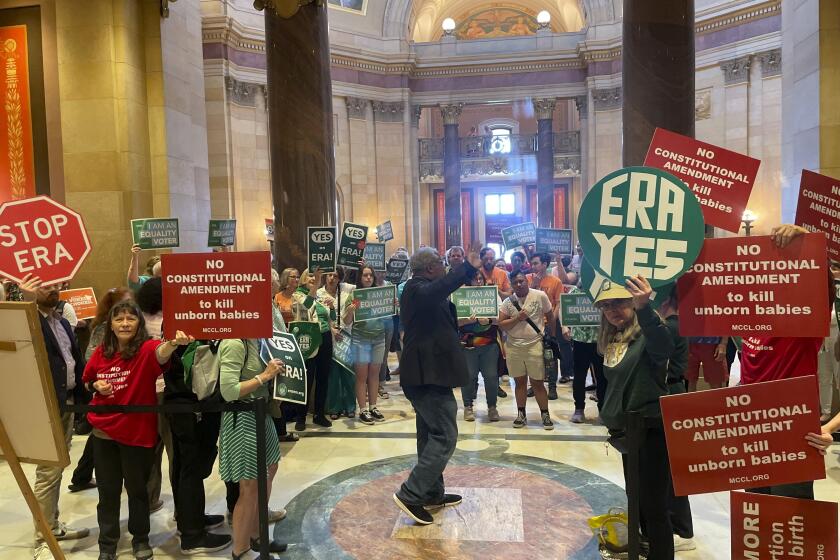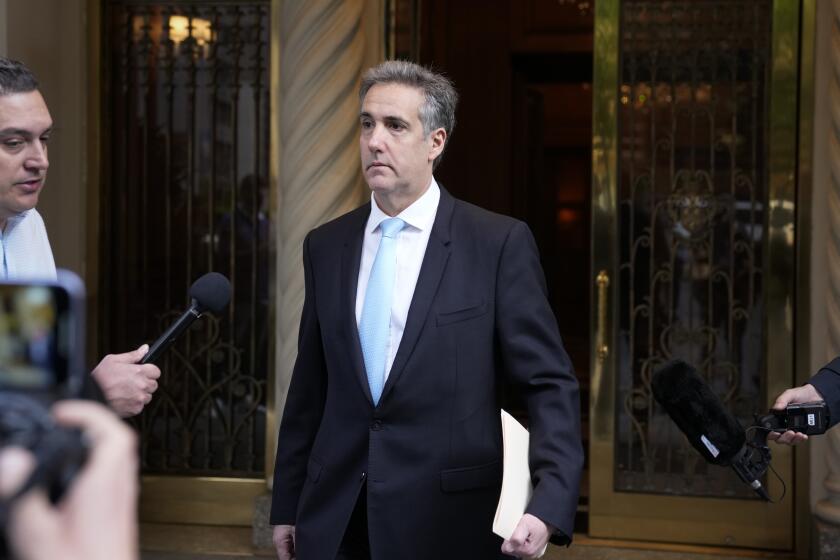Bush Averts Government Shutdown : Budget: With a deficit plan in sight, the President signs a measure to keep federal agencies running.
President Bush early today signed a measure to keep a budget-less government running until midnight Saturday, setting off a scramble by congressional leaders for spending compromises as they neared completion of a deficit-reduction plan.
All sides were in virtual agreement on major tax proposals, which have the support of Bush.
“Do not despair; the end is in sight,” said Rep. Silvio O. Conte (R-Mass.) as the House and Senate inched toward final adjournment Saturday of the 101st Congress.
White House spokesman Marlin Fitzwater said Bush was satisfied with the overall final package that was emerging, although there were still some details to be worked out.
“There have been compromises on both sides,” Fitzwater said, noting that the package meets Bush’s overall goal of a $500-billion, five-year budget package.
A senior Administration official, briefing a group of reporters on the condition of anonymity, said Bush expected wide bipartisan support in both chambers for the budget deal.
Assuming no unexpected hitch, final votes on the deficit-reduction package could come Friday in the House and Senate. That would close another chapter in a long-running fight between the executive and legislative branches and remove the major obstacle to adjournment--barely a week before the Nov. 6 elections.
“We still have a lot of work to do,” Sen. Lloyd Bentsen (D-Tex.), chairman of the Senate Finance Committee, told reporters as leaders began another series of closed meetings to work out the budget plan.
The plan will mean higher taxes on tobacco, alcoholic beverages, airline tickets, cars, boats, furs and jewelry. A gasoline tax increase of 5 or 6 cents a gallon is likely, and retirees probably will have to pay more for Medicare coverage.
Several changes, whose details were still being negotiated, will mean heftier income taxes on those with higher incomes, especially those above the $100,000-a-year range. But a provision that would have raised taxes on lower- and middle-income Americans by forgoing next year’s scheduled inflation adjustment in income taxes was dropped.
More to Read
Get the L.A. Times Politics newsletter
Deeply reported insights into legislation, politics and policy from Sacramento, Washington and beyond. In your inbox three times per week.
You may occasionally receive promotional content from the Los Angeles Times.






